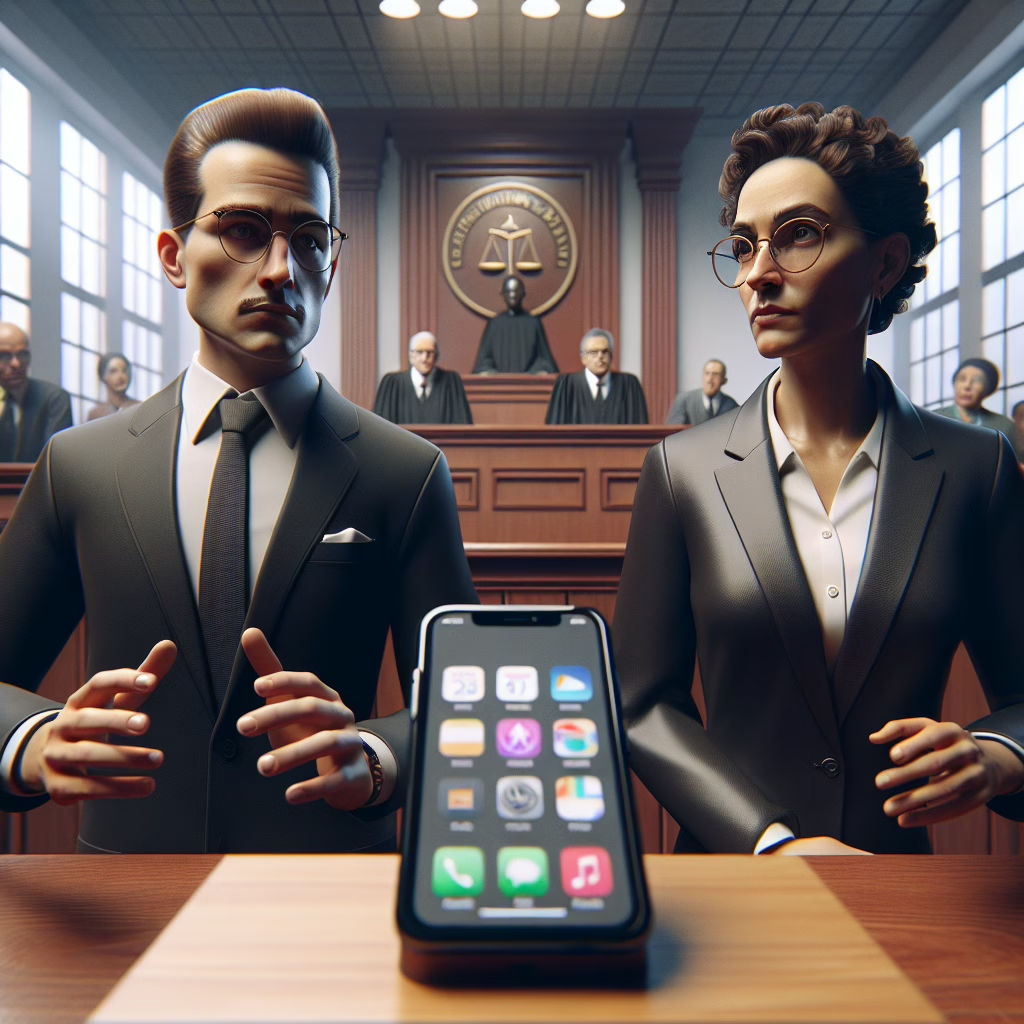Apple’s Defense: A Technological Ballet
In a thrilling twist of courtroom drama, Apple has stepped up to respond to the Department of Justice (DOJ) lawsuit regarding its iPhone practices. This legal tango dances through the intricacies of antitrust laws, monopolistic maneuvers, and, of course, our beloved gadgets. Buckle up, because we’re diving into Apple’s defense strategy with a sprinkle of humor and a dash of insight!
The Case Against Apple: The Plot Thickens
At the heart of the DOJ’s accusations is a claim that Apple has been playing a not-so-friendly game of monopoly in the tech playground. Allegedly, the company has been using its market power to stifle competition and, let’s be honest, crush any potential rivals like a bug underfoot. The DOJ argues that by restricting certain functionalities on the iPhone, Apple has snuffed out innovation faster than you can say “App Store”.
But wait! Before we grab our pitchforks and torches, let’s examine what Apple has to say about all this hullabaloo. They argue that their practices are all about ensuring iPhone users enjoy a seamless experience—like butter on warm toast. After all, who wants random apps crashing your device or security holes wider than a donut?
Apple’s Counterarguments: A Symphony of Justification
In its official response, Apple claims that their restrictions are not about shutting out competition but about maintaining quality control. Imagine if anyone could sell you an app that turned your phone into a microwave—yikes! They insist that these measures protect users from harmful software and ensure that every app meets their top-notch standards. In other words, they’re just trying to keep our iPhones as safe as grandma’s secret cookie recipe.
Moreover, Apple points out that the App Store is a thriving ecosystem where developers can flourish. It’s like a farmer’s market but for apps—complete with fresh produce (or apps) and slightly overpriced organic products (you know who you are). According to them, the App Store provides developers with access to millions of users while also offering robust security features that keep malware at bay.
The Bigger Picture: Innovation vs. Regulation
This lawsuit isn’t just another episode in the long-running saga of tech giants versus government regulation; it’s also an opportunity for a broader conversation about innovation in technology. Are regulations stifling creativity? Or are they necessary to level the playing field? In this case, it seems both sides have valid points.
Apple argues that strict regulations could deter companies from developing groundbreaking technologies for fear of legal repercussions. Imagine if every time someone invented something new, they had to check with the legal department first—innovation would come to a screeching halt! On the flip side, there’s concern that without regulations, big players like Apple could monopolize everything from smartphones to smart fridges (and who wants an iFridge?).
The User Experience: What Does It Mean for You?
So, what does all this mean for you—the devoted iPhone user? Well, if Apple plays its cards right and comes out swinging against this lawsuit, you might just continue enjoying those slick updates and innovative features without interruption. However, if things go south, brace yourself for potential changes in how you use your device.
If the DOJ wins this legal battle, it could lead to more choices in app stores and potentially lower prices—who doesn’t want that? But let’s not forget that with more choices comes more responsibility. After all, more options could also mean more apps that turn your phone into a glorified paperweight!
A Silver Lining: Consumers Might Win
If nothing else, this lawsuit could serve as a wake-up call for Apple and other tech giants alike. Competition can be a beautiful thing! It pushes companies to innovate faster than ever before—like caffeine-fueled squirrels on roller skates! So while we may be watching this legal showdown unfold like an episode of our favorite courtroom drama series, let’s hold onto hope for better options ahead.
In conclusion, whether you’re Team Apple or Team Antitrust, one thing is clear: this case is far from over. As we keep our eyes peeled for updates (and perhaps some dramatic courtroom revelations), we invite you to share your thoughts on this juicy topic in the comments below!
What’s Next for Apple and the DOJ?
The outcome of this lawsuit could reshape the tech landscape significantly. If the DOJ prevails, it might lead to sweeping changes in how Apple operates with the iPhone. The implications are vast—ranging from how apps are distributed to the types of features that can be enabled on devices.
In addition, Apple’s defense will likely influence perceptions of their brand and customer loyalty. Are users willing to sacrifice some level of control for convenience? This dilemma will shape the future of consumer choice in the tech world.
Final Thoughts: Stay Informed
As this case unfolds, it is crucial for consumers to stay informed. Whether you use an iPhone or another device, the results will impact everyone in the digital ecosystem. Engaging with the discussion, understanding your rights as a consumer, and holding companies accountable is essential.
For further exploration of technology and consumer rights, check out our related articles on Google’s Pixel 10 and updating your Windows PC.
For more insights on antitrust discussions, visit our dedicated section: DOJ. This is a conversation worth having as technology continues to evolve.

